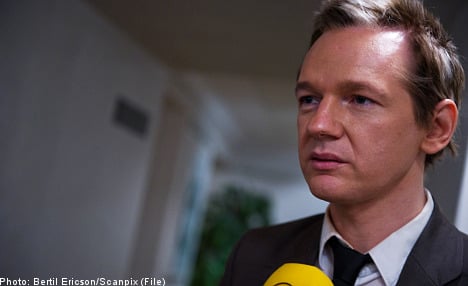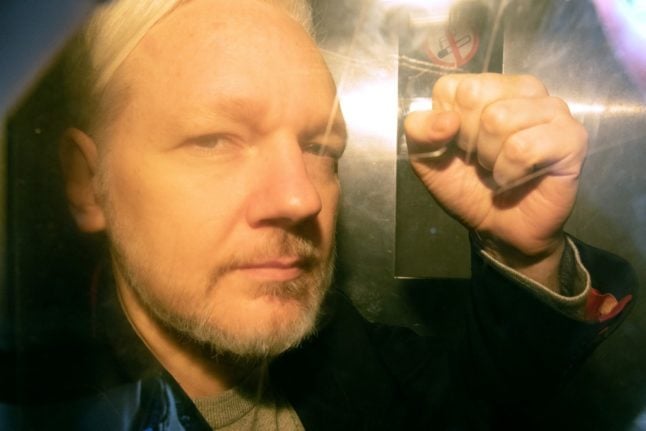Prosecutor Marie Häljebo Kjellstrand confirmed that a warrant was issued on Friday evening and that the grade of suspicion — probable cause — was strong enough to ensure that the 39-year-old Australian could be detained upon his arrest, newspaper Expressen reports.
A source close to the case told the newspaper that two women in their twenties went to the police in Stockholm on Friday to speak about their recent encounters with Assange.
The Swedish Prosecution Authority released a statement on Saturday morning in which it revealed that the warrant was based on “one report of rape and one report of molestation. A warrant has been issued for the person’s arrest since there is a risk that he could hamper the investigation.”
Assange spent time with one of the women at an apartment in Södermalm in Stockholm on Saturday night, while he met the other women in the nearby town of Enköping, according to Expressen. The prosecution authority said Assange was suspected of rape in the Enköping case and molestation in Stockholm.
Kristinn Hrafnsson, a colleague of Assange’s who spoke to news agency AFP from Iceland, said that the charges against him were false.
“He didn’t know of the charges until he read them in the right wing tabloid Expressen this morning”, Hrafnsson said. “There are powerful organisations who want to do harm to WikiLeaks.”
Hrafnsson said Assange was still in Sweden and would “go to the police very quickly.”
The WikiLeaks founder also personally denied the accusations in an email to Stockholm daily Dagens Nyheter.
“Why these accusations are coming at this point in time is an interesting question. I haven’t been contacted by the police. The allegations are false.”
Assange has spent time in Sweden over the last week as a guest of the Association of Christian Social Democrats. WikiLeaks chose to move its servers from the United States to Sweden in 2007 as Assange believed the site would benefit from Swedish laws protecting journalists’ sources.
The pentagon recently called on WikiLeaks to halt the publication of 70,000 leaked classified documents from the US-led war in Afghanistan. But Assange instead vowed to press ahead with the publication of a further 15,000 secret documents.



 Please whitelist us to continue reading.
Please whitelist us to continue reading.